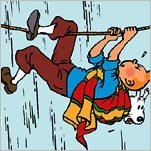Grenades Hit Home
As I was taking a personal moment of silence to reflect on what's going on in Lebanon and the shock that we all feel, it dawned on me that silence is the last thing we need right now in the face the human rights abuses being committed throughout the Middle East.
A couple of days ago, the New York Times frontpage showed a moving image of two Israeli soldiers who'd made it back across the border. Meanwhile, immigrants from other countries whose governments have little clout remain trapped inside Lebanon. As do the Lebanese who cannot or will not leave their homeland, understandably so. So I'm pausing today to listen to some of these far-away voices.
Naeem Mohaiemen, a mixed media artist who co-created DISAPPEARED IN AMERICA, a project that uses films, installations, & lectures to trace migration impulses, hyphenated identities and post-9/11 security panic, collects some of these unheard voices on his listerve Shobak. I'll share just a few...
Emily Jacir, a writer in Lebanon and one of the few residents who as of last week still had access to phone, reports that the media is looking desperately for people inside who can speak to the press. Emily wrote following in one of her e-mails:
If you live outside of Lebanon and Palestine and you know people around you who have loved ones in either place, please recognize that they are in a lot of pain, are not sleeping, and are trying to contact their loved ones on an hourly basis. Life is very much abnormal and it is important to acknowledge that. It is not business as usual for many of us and it hurts when people contact you as if nothing is happening. For some this is not the "news."
Another brave voice: a Rabbi's son, Michel Warschawski who left
for Israel at the age of sixteen to study the Talmud:
When a country has created borders that it has continually expanded in violation of every rule of international law; when the end, that is, the Jewish state, always justifies the means; then it should be no surprise that respecting Israel's own rules turns out to be terribly difficult.
Zena el-Khalil, an artist asks:
The question is what am I to do if I had the opportunity to leave? Would I leave? What do I do with my friends? My family? My art studio?....What about art work in my studio? What about all my brushes and paints and glitter and books! All my books!...What about our photo albums? All our family pictures? The memories...What
about the doodles I drew on my balcony a few summers ago when I was
suffering from a bad break up? What about all the love letters I have
saved? Letters that document my youth that I wanted to some day give
to my daughter.
A couple of days ago, the New York Times frontpage showed a moving image of two Israeli soldiers who'd made it back across the border. Meanwhile, immigrants from other countries whose governments have little clout remain trapped inside Lebanon. As do the Lebanese who cannot or will not leave their homeland, understandably so. So I'm pausing today to listen to some of these far-away voices.
Naeem Mohaiemen, a mixed media artist who co-created DISAPPEARED IN AMERICA, a project that uses films, installations, & lectures to trace migration impulses, hyphenated identities and post-9/11 security panic, collects some of these unheard voices on his listerve Shobak. I'll share just a few...
Emily Jacir, a writer in Lebanon and one of the few residents who as of last week still had access to phone, reports that the media is looking desperately for people inside who can speak to the press. Emily wrote following in one of her e-mails:
If you live outside of Lebanon and Palestine and you know people around you who have loved ones in either place, please recognize that they are in a lot of pain, are not sleeping, and are trying to contact their loved ones on an hourly basis. Life is very much abnormal and it is important to acknowledge that. It is not business as usual for many of us and it hurts when people contact you as if nothing is happening. For some this is not the "news."
Another brave voice: a Rabbi's son, Michel Warschawski who left
for Israel at the age of sixteen to study the Talmud:
When a country has created borders that it has continually expanded in violation of every rule of international law; when the end, that is, the Jewish state, always justifies the means; then it should be no surprise that respecting Israel's own rules turns out to be terribly difficult.
Zena el-Khalil, an artist asks:
The question is what am I to do if I had the opportunity to leave? Would I leave? What do I do with my friends? My family? My art studio?....What about art work in my studio? What about all my brushes and paints and glitter and books! All my books!...What about our photo albums? All our family pictures? The memories...What
about the doodles I drew on my balcony a few summers ago when I was
suffering from a bad break up? What about all the love letters I have
saved? Letters that document my youth that I wanted to some day give
to my daughter.

